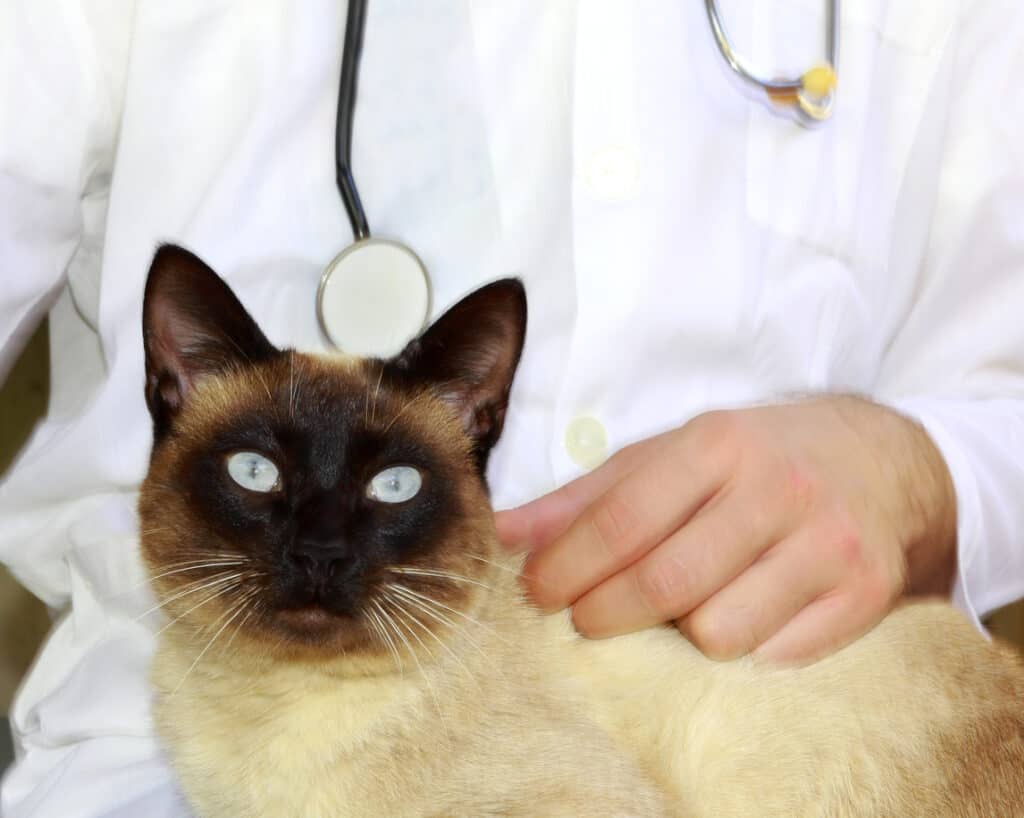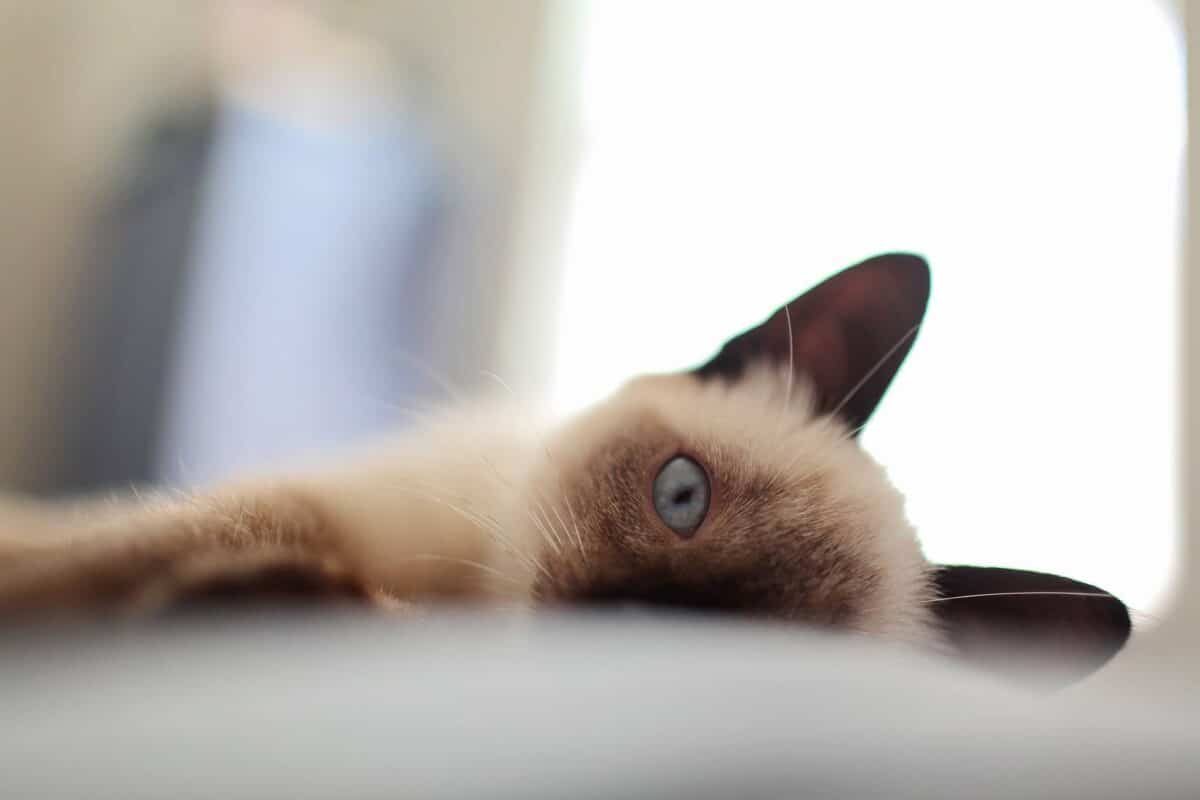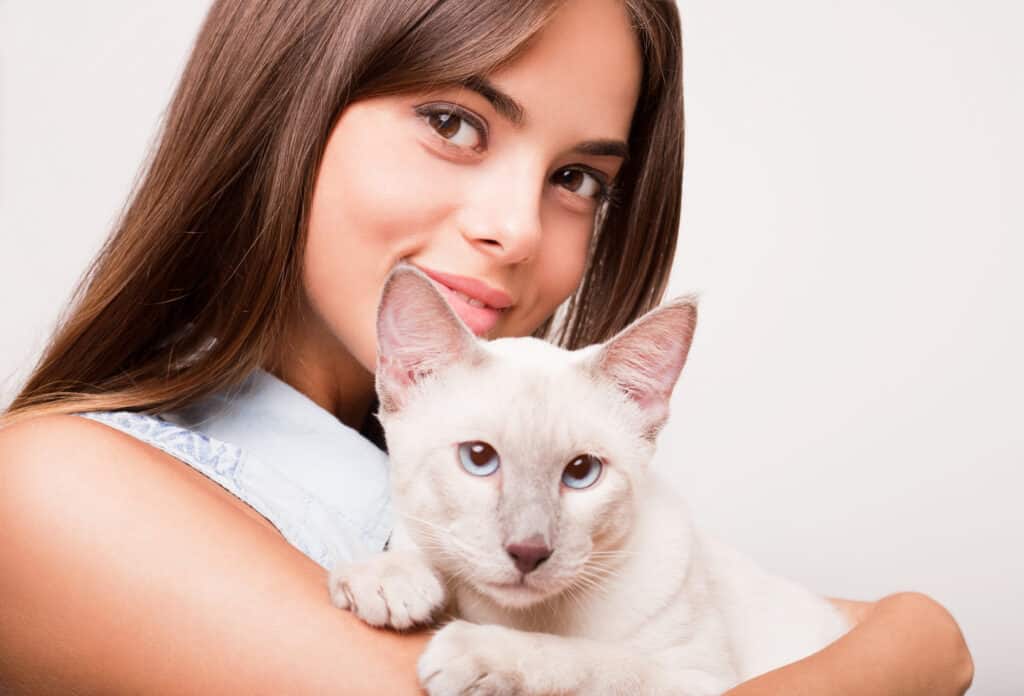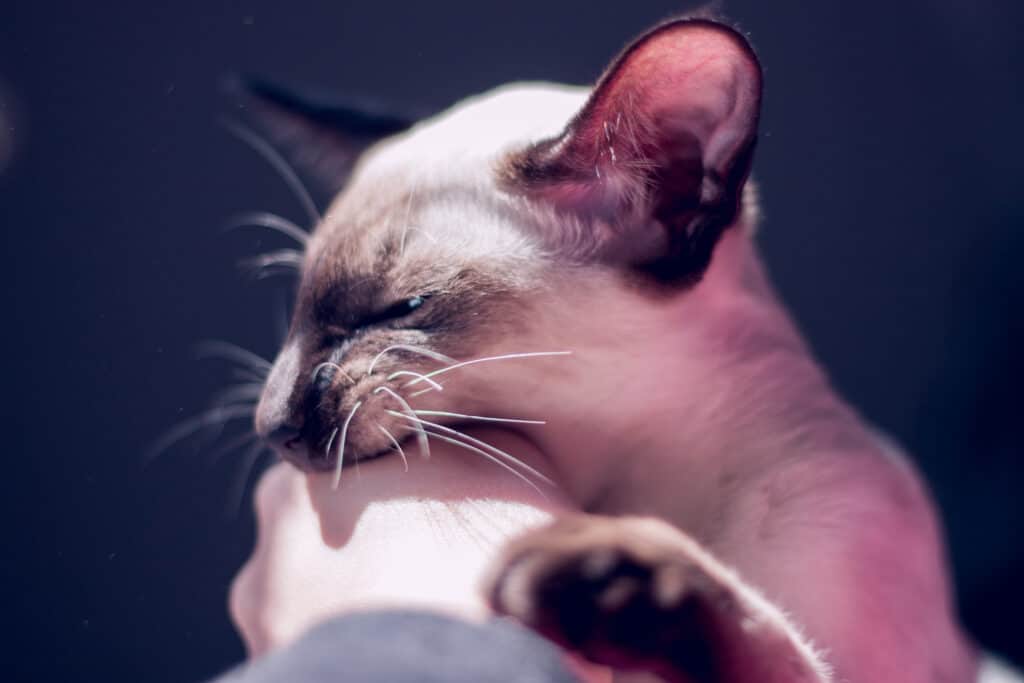Siamese cats are beautiful pets and are known to be quite chatty. This makes it all the more jarring when, all of a sudden, we don’t hear them meow. It’s essential to address the question, “Why does your Siamese cat not meow?”
Your Siamese cat might stop meowing because of a health concern. If you’ve noticed a sudden change in their behavior that coincides with their lack of meowing, it’s crucial to see the vet. While the change might not always be due to a health concern, you’d rather have the vet check them out.
In this article, we’ll take a look at how chatty Siamese cats usually are and when their lack of meowing becomes a concern. You’ll learn about why cats stop meowing and how to watch out for red flags of related feline health issues.
Reasons for Siamese Cats Not Meowing
There are a few common reasons why a Siamese cat will stop meowing out of the blue.
The most recurring reasons include personality changes and health issues. Some cats will naturally stop meowing as much as usual as they age, that is as compared to their days as a kitten.
On the other hand, cat owners should watch out for signs of health issues, including upper respiratory infections, which can prevent them from meowing like normal.
Let’s take a look at some of the biggest causes for Siamese cats suddenly not meowing.
Feline Upper Respiratory Infection
Cats suffering from upper respiratory infections will display key warning signs. These include nasal discharge and sneezing.
Fetch by WebMD warns that feline upper respiratory infections must be addressed immediately. While these infections are more common than we realize, their commonality doesn’t make them any less harmful to cats.
The moment you suspect that your cat is suffering from a respiratory infection, you should get them to your vet as soon as possible.
Sneezing, discharge from the eyes or nose, and squinting are significant warning signs of your kitty suffering from an upper respiratory infection.
These infections are typically caused by varying viruses but can also result from bacterial infections. Cats who frequently go outdoors have an increased risk of picking up this sickness.
Don’t wait longer than necessary to take your kitty to the vet. Your vet will use blood tests and other methods to diagnose your cat’s health.
In case it is indeed a respiratory infection, the vet will prescribe medications, often antibiotics, to help your kitty recover.
Additional to the meds, the vet will likely prescribe plenty of rest for your Siamese cat. It’s crucial, as with any illness, to avoid stress which can easily prolong their symptoms.
Laryngeal Paralysis
Another disease to watch out for is feline laryngeal paralysis.
PetMD reveals that this is a dangerous throat condition that prevents cats from breathing properly, naturally leading to a lack of meowing. Because this illness impacts the “voice box” muscles, cats become unable to meow correctly.
Look out for any visible struggles when your cat is breathing, coughing, or trying to meow but only managing a rasp. Take your kitty to the vet so that they can do a complete examination and determine if they’re suffering from laryngeal paralysis.
Thankfully, while laryngeal paralysis can be scary, there are still methods to defeat it. Often, your vet will prescribe steroids to help your cat recover. They might also prescribe sedatives to enable your cat to relax and breathe better.
Surgery might be necessary, especially if prescriptions end up being ineffective in some cases.
If your cat needs surgery, they’ll need to spend a day or two resting at the vet clinic before being allowed to go home. Give them at least 10 rest days or longer to help them recover fully.
Cat Allergies
We sometimes forget that our cats, too, can suffer from various pesky allergies.
Even the symptoms of cat allergies are similar to ours. Cats suffering from allergies are prone to frequent sneezing and itchy eyes. Unfortunately, they can also suffer from vomiting or diarrhea, depending on the specific allergy.
As it goes, cats can’t meow when they’re struggling to not constantly sneeze. When springtime comes around and pollen starts to skyrocket, both cats and their owners are bound to deal with the aggravating side effects.
Another type of allergy to watch out for is flea allergies. Suppose a flea bites your cat, and they have a nasty reaction, in that case, they’re likely to suffer from immensely irritating bodily responses.

To test for allergies, your vet will either use a blood or injection test to determine what the cause of the reactions could be. Because there are multiple kinds of allergies, there isn’t a “one size fits all” solution. What seems like a pollen allergy could actually be your kitty reacting to something entirely different.
To help prevent your cat from dealing with allergy issues, take steps to eliminate any possible irritants in your home.
Make sure your litter is free of dust, which can easily cause allergic reactions. While dust-free litter might not be cheap, your cat will thank you with much loud meowing in return.
Also, if you smoke, always smoke away from your cat. Stepping outside to smoke will prevent your cat from inhaling any fumes and having reactions.
With proper precautions, you can help mitigate allergy symptoms for your pet and thus enjoy plenty of healthy, sneeze-free meows.
Refusing To Meow for Emotional Reasons
Another less-lethal reason for your Siamese kitty refusing to meow is the possibility of them simply being unhappy.
Pawtracks clarifies that all cats need time to adjust to new environments and that during this adjustment period, they won’t meow as much. It takes time for them to get used to their new living space, and this is completely normal.
Again, another thing to watch out for is your Siamese cat reacting negatively to a lack of attention. Give them plenty of love on a daily basis to avoid this issue.
A happy cat is a healthy cat, after all.
Actions To Take if Your Siamese Cat Isn’t Meowing
If you notice your cat meowing less than usual, your first action is to inspect them for health concerns. If you see any indication that they’re sick, don’t hesitate to take them to your vet as soon as possible.
Because the symptoms of allergies, infections, and other feline illnesses can easily blend together, always ask your vet for advice instead of trying to determine the diagnosis. It’s far better to be on the safe side and ask instead of assuming.
If you can eliminate the possibility of sickness hampering their meowing, there’s a strong chance that more affection will resolve this issue. Remember that with Siamese cats, a lack of constant affection can directly lead to them developing depression. A lack of meowing in place of their usual chatter is a clear indicator of your Siamese kitty needing more love.
Conclusion
Siamese cats are beautiful, unique kitties who love to be vocal. Because of their love for cat chatter, it’s alarming when they suddenly stop meowing. If your Siamese cat stops meowing as much as they usually do, you need to ensure that they’re not suffering from a health ailment.
Of course, also keep in mind that they need lots of love, often more-so than other cat breeds. If you keep them satisfied with lots of affection, you’ll prevent them from developing gloominess and a subsequent lack of meowing.
References
https://www.thesprucepets.com/cat-not-meowing-554828
https://www.petmd.com/cat/conditions/mouth/laryngeal-paralysis-cats
https://pets.webmd.com/cats/cat-allergy-symptoms-triggers
https://www.pawtracks.com/cats/cat-does-not-meow/#:~:text=1%20Emotional%20upset.%20If%20you%E2%80%99re%20thinking%20that%20%E2%80%9Cmy,may%20injure%20his%20throat%20or%20voice%20box.%20




